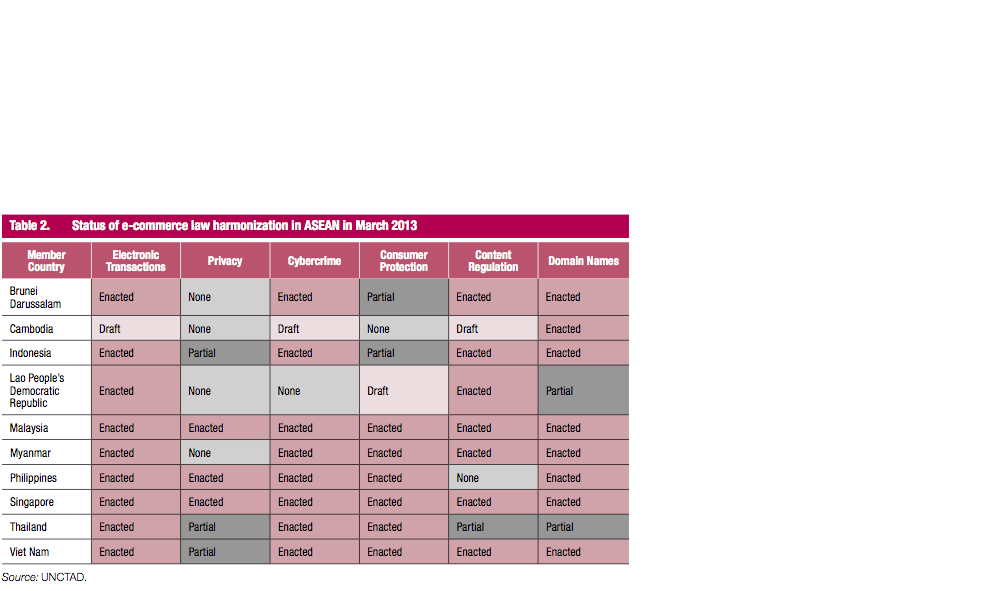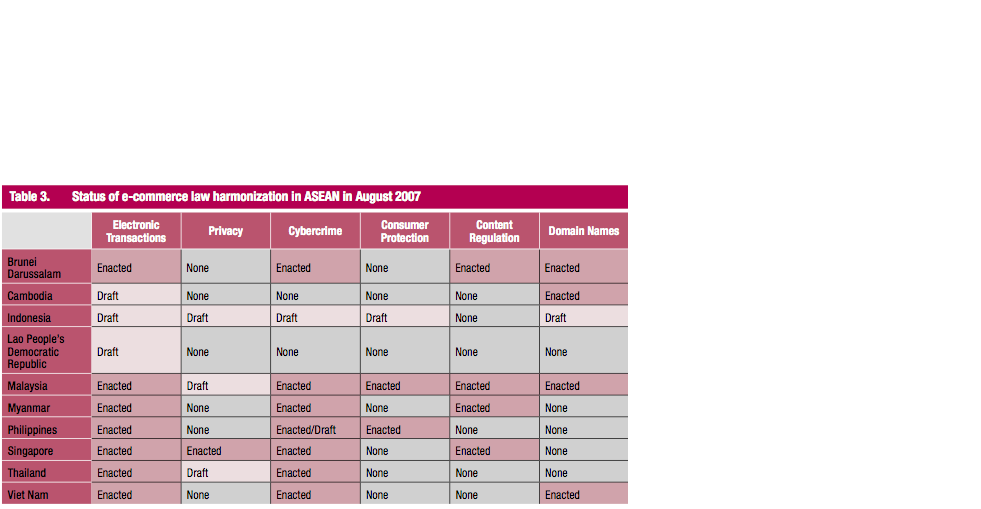Review of e-commerce legislation harmonization in the Association of Southeast Asian Nations (ASEAN) [UNCTAD/DTL/STICT/2013/1]
The current status of e-commerce law harmonization in ASEAN
Table 2 summarizes the current status of e-commerce law in each country in key areas and shows progress in terms of legal harmonization within ASEAN.[1]1 Overall, harmonization has advanced the most in the area of electronic transactions laws, with nine out of ten member countries now having electronic transactions legislation in place, and in the area of domain-names legislation with all the countries having some form of legislation.
Progress in other areas has been slower, although the majority of member countries have some form of cybercrime legislation in place, and three countries have recently enacted privacy legislation.
Tables 2 and 3 show that the region has made progress towards the enactment of legislation in all of the key areas identified in this Review. Progress in the enactment of privacy laws remains the weakest area, and this may have the potential to hinder e-commerce and cloud computing if it is not adequately addressed. Developments in all other areas are encouraging.


Source: ASEAN e-Commerce Project, ASEAN secretariat and Galexia, August 2007.
However, simply enacting laws is only one part of the development of effective legal infrastructure in the region. Even with a law in place, member countries may face challenges in implementing, enforcing and promoting the requirements of those laws. Also, the harmonization of laws in the region depends on countries adopting similar approaches based on international best practice.
The country chapters contained in this Review provide a more detailed picture of some of the challenges faced in implementing harmonized laws in ASEAN.
[11] A compendium of e-commerce laws in ASEAN member States is presented in annex 1.

![[2018 Global Cloud Computing Readiness Scorecard]](/public/ssi/pubs/pub_1.png)
 print this page
print this page sitemap
sitemap rss news feed
rss news feed manage email subscriptions
manage email subscriptions